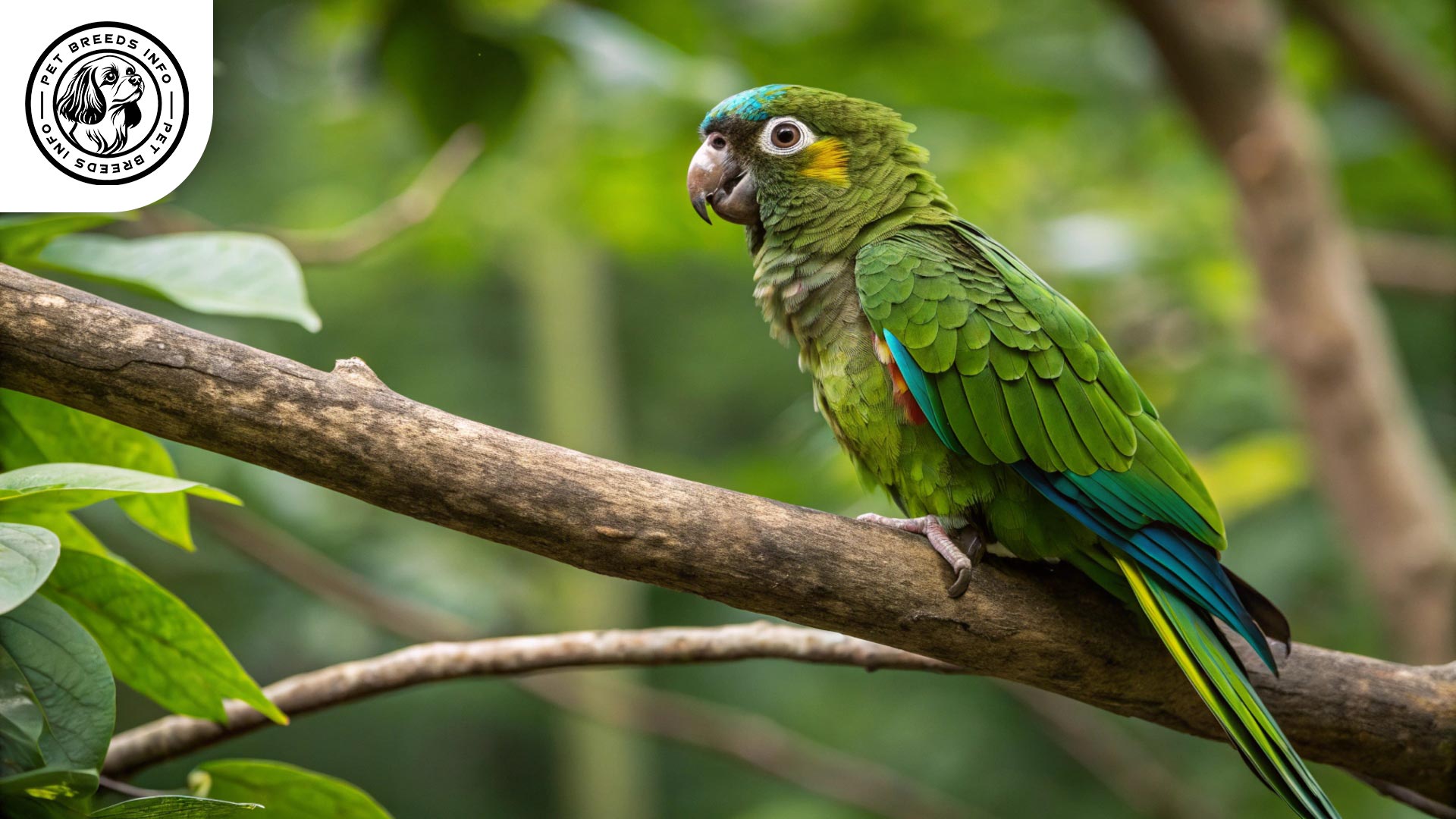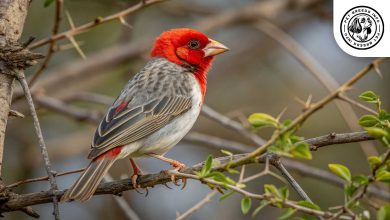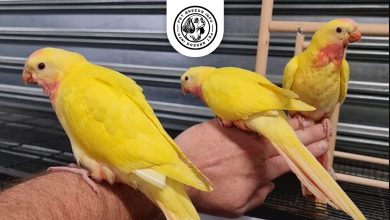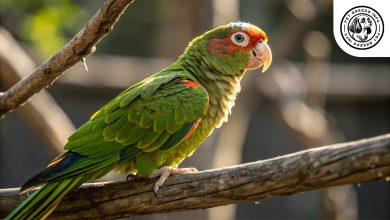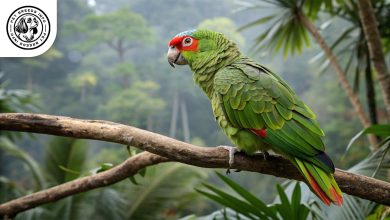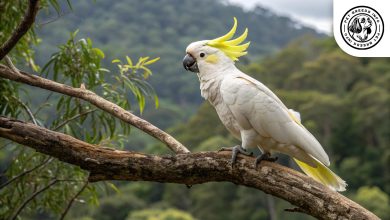Hoffmann’s Conure Bird: Personality, Lifespan, Food & Care
General Introduction of the Breed
Hoffmann’s Conure (Pyrrhura hoffmanni) is a medium-sized parrot native to Central America. It is also known as the Hoffmann’s Parakeet. This beautiful bird is primarily found in Costa Rica and western Panama, where it thrives in forested areas.
Named after the German naturalist Karl Hoffmann, this species is a member of the Pyrrhura genus, which includes several other conures. It has gained popularity among bird enthusiasts due to its playful personality, striking plumage, and intelligence.
Table of Contents
| Common Name | Hoffmann’s Conure, Hoffmann’s Parakeet |
| Scientific Name | Pyrrhura hoffmanni |
| Origin | Costa Rica and western Panama |
| Size | Approximately 22 cm (8.6 inches) in length, 60–80 grams in weight |
| Lifespan | 15–25 years with proper diet and care |
| Talking Ability | Enjoys vocalizing and mimicking sounds from their surroundings |
| Colors | Primarily vibrant green with reddish-brown and blue highlights, dark scalloping on the head and upper chest |
| Noise Level | Not loud compared to some other parrot species |
| Social Behavior | Highly social, enjoys interacting with humans and other birds, forms strong bonds with owners |
Physical Characteristics
Hoffmann’s Conure is a small to medium-sized parrot, typically measuring around 22 cm (8.6 inches) in length and weighing approximately 60–80 grams.
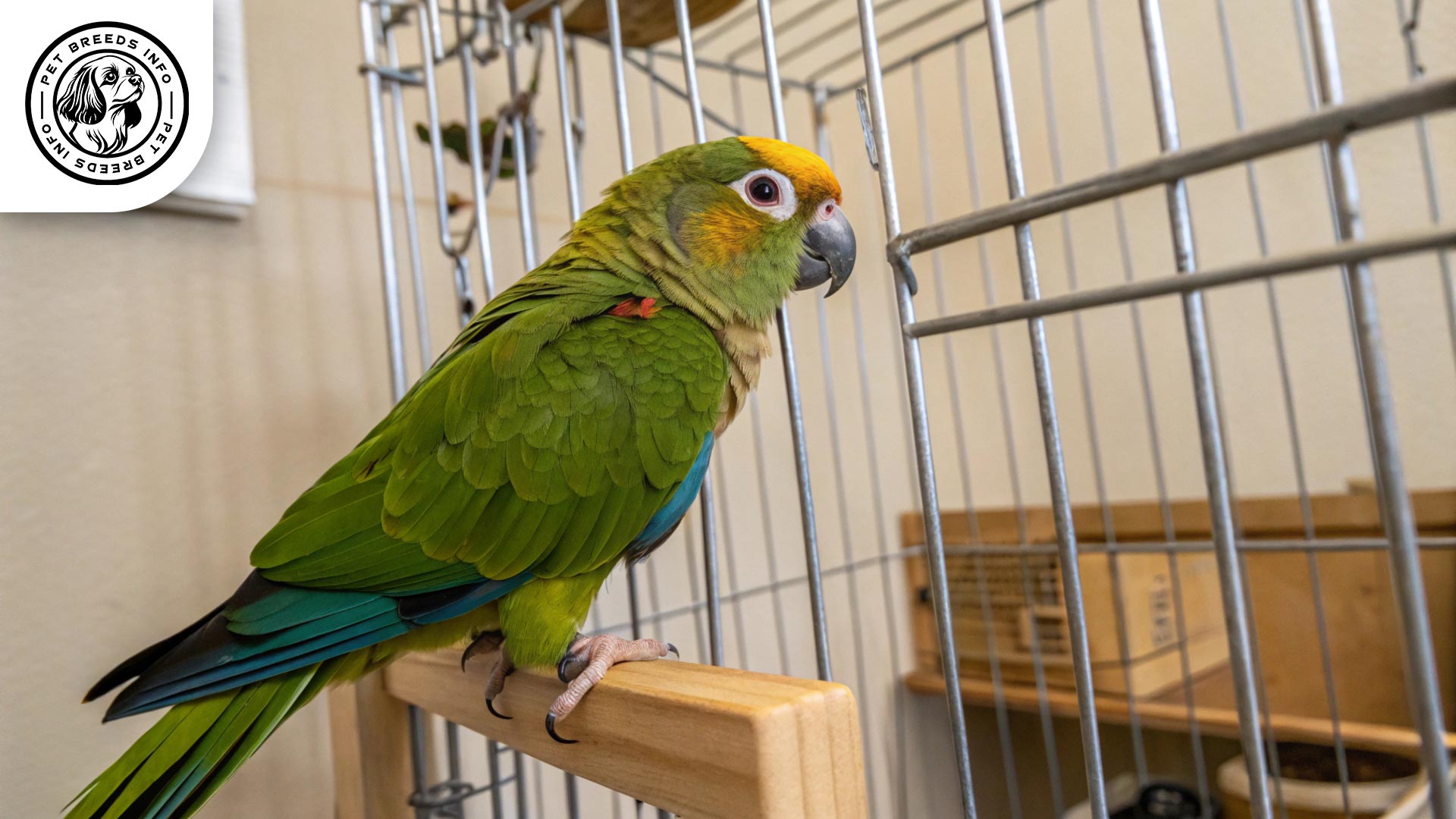
Their plumage features a mix of vibrant green with reddish-brown and blue highlights. The head and upper chest are speckled with dark scalloping, giving them a distinctive appearance. These birds have dark eyes surrounded by white eye rings, a short yet powerful beak, and a long, tapered tail.
Unlike some other conures, Hoffmann’s Conures do not exhibit significant sexual dimorphism, meaning males and females look alike.
Read More: Green-rumped Parrotlet
Personality and Temperament
Hoffmann’s Conure is known for its intelligent and curious nature. It is highly social and enjoys interacting with both humans and other birds. These birds are playful and energetic, requiring mental stimulation to prevent boredom.
They form strong bonds with their owners and thrive in environments where they receive consistent attention. While generally affectionate, they can be somewhat shy at first but warm up with patience and gentle handling.
They are not loud compared to some other parrot species, but they do enjoy vocalizing and mimicking sounds from their surroundings. Their social nature makes them an excellent choice for bird lovers who can dedicate time to bonding and training.
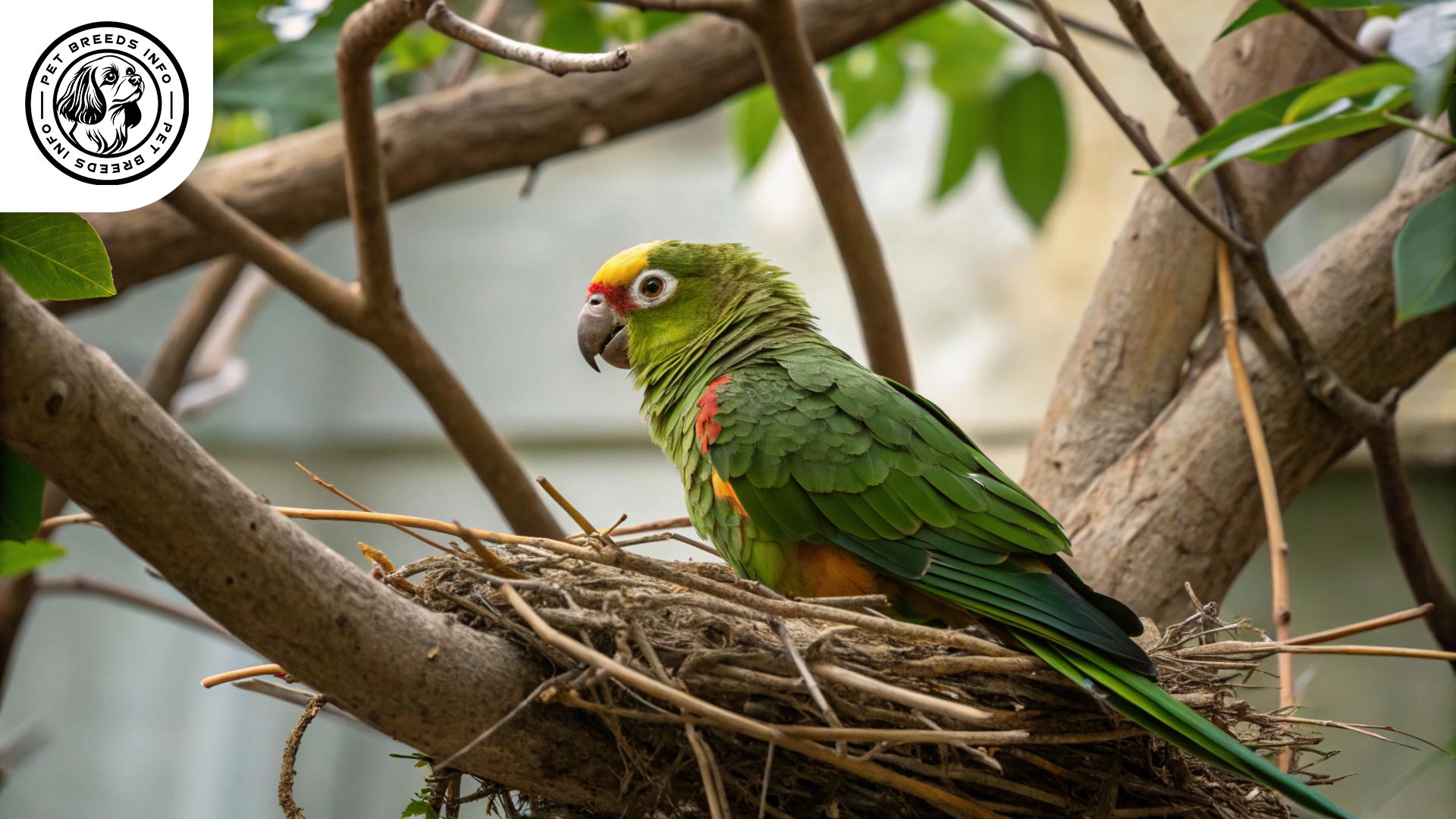
Care and Maintenance Requirements
Hoffmann’s Conures are active birds that require daily exercise and mental stimulation. They should have a spacious cage with plenty of toys, perches, and opportunities for climbing.
They do well in both apartments and larger homes, as long as they have sufficient out-of-cage time for exercise. Regular interaction with their owners is crucial to prevent loneliness and behavioral issues.
Grooming includes nail trimming, occasional beak maintenance, and periodic baths. Their feathers should be misted with water to keep them clean and hydrated. Regular cage cleaning is also necessary to maintain their health.
Diet and Nutrition
A balanced diet for Hoffmann’s Conures includes high-quality commercial pellets, fresh fruits, and vegetables. They also enjoy seeds, but these should be given in moderation.
Ideal foods include apples, carrots, berries, and leafy greens. Avoid chocolate, avocado, caffeine, and excessively salty or sugary foods, as these can be harmful to their health.
Fresh water should always be available, and portion sizes should be adjusted according to the bird’s appetite and activity level.
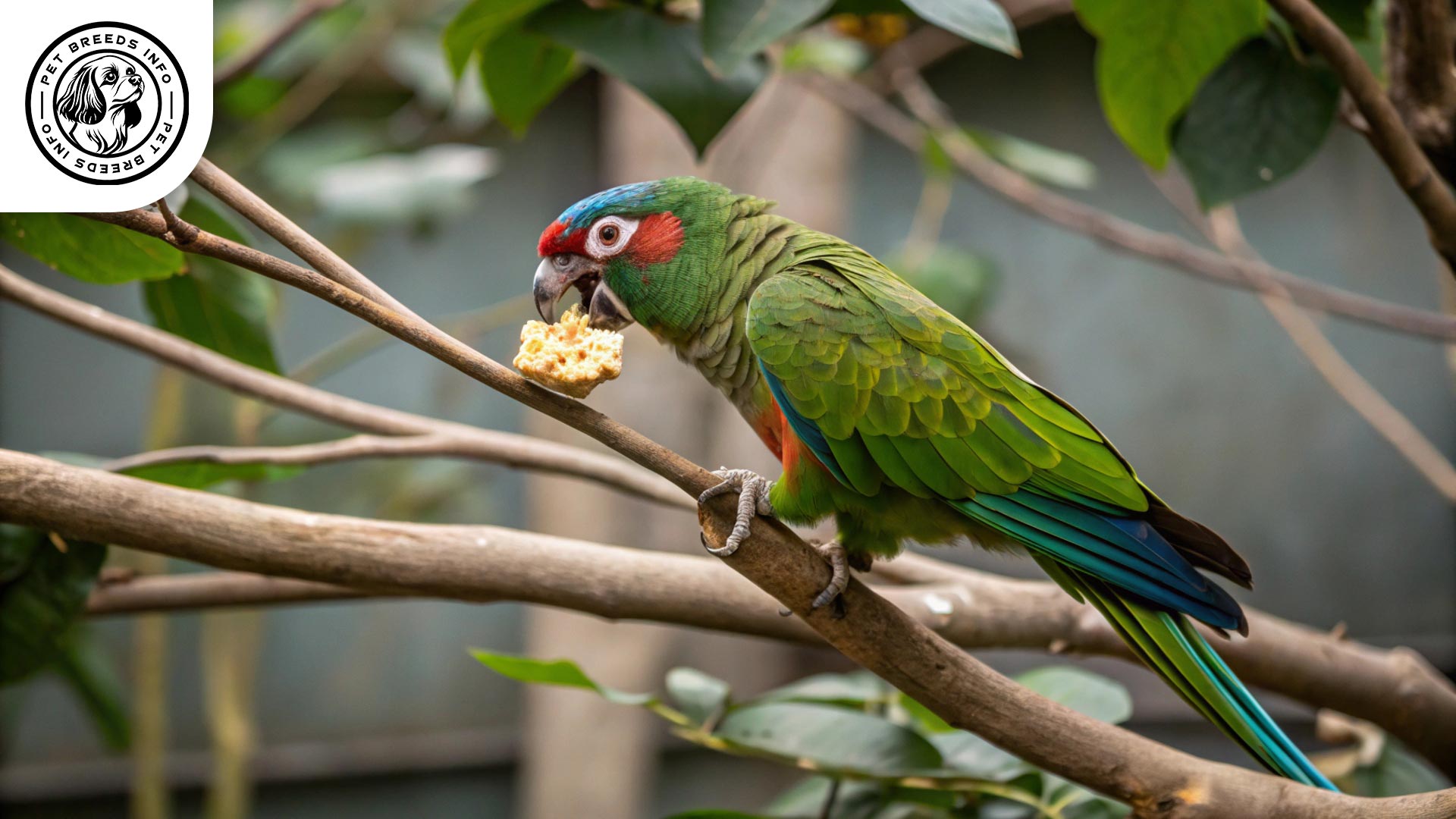
Health and Common Medical Issues
Hoffmann’s Conures are generally hardy birds when given proper care, but they are prone to some common avian health issues, including respiratory infections, feather plucking (due to stress or boredom), and beak deformities.
They have an average lifespan of 15–25 years with proper diet and care. Routine vet check-ups, a clean living environment, and mental stimulation can help prevent major health problems.
Regular vaccinations and parasite prevention are not always required for pet birds, but they should be discussed with an avian veterinarian.
Read More: Green-rumped Parrotlet
Training and Behavior Management
Hoffmann’s Conures are intelligent and capable of learning various tricks and commands. They respond well to positive reinforcement training methods.
Early socialization is important to help them become well-adjusted and confident. Teaching commands such as “step up” can be beneficial for handling.
Using treats and verbal praise encourages learning. Avoid harsh discipline, as these birds are sensitive and may become fearful or anxious if treated poorly.
Interaction with Other Animals and Humans
These birds bond closely with their owners and enjoy being part of the family. They are generally good with children but should be handled gently to avoid stress.
Hoffmann’s Conures can coexist with other birds but should be introduced gradually. Supervised interaction with other pets is recommended to ensure their safety.
They are ideal for both individuals and families, provided they receive ample social interaction and attention.
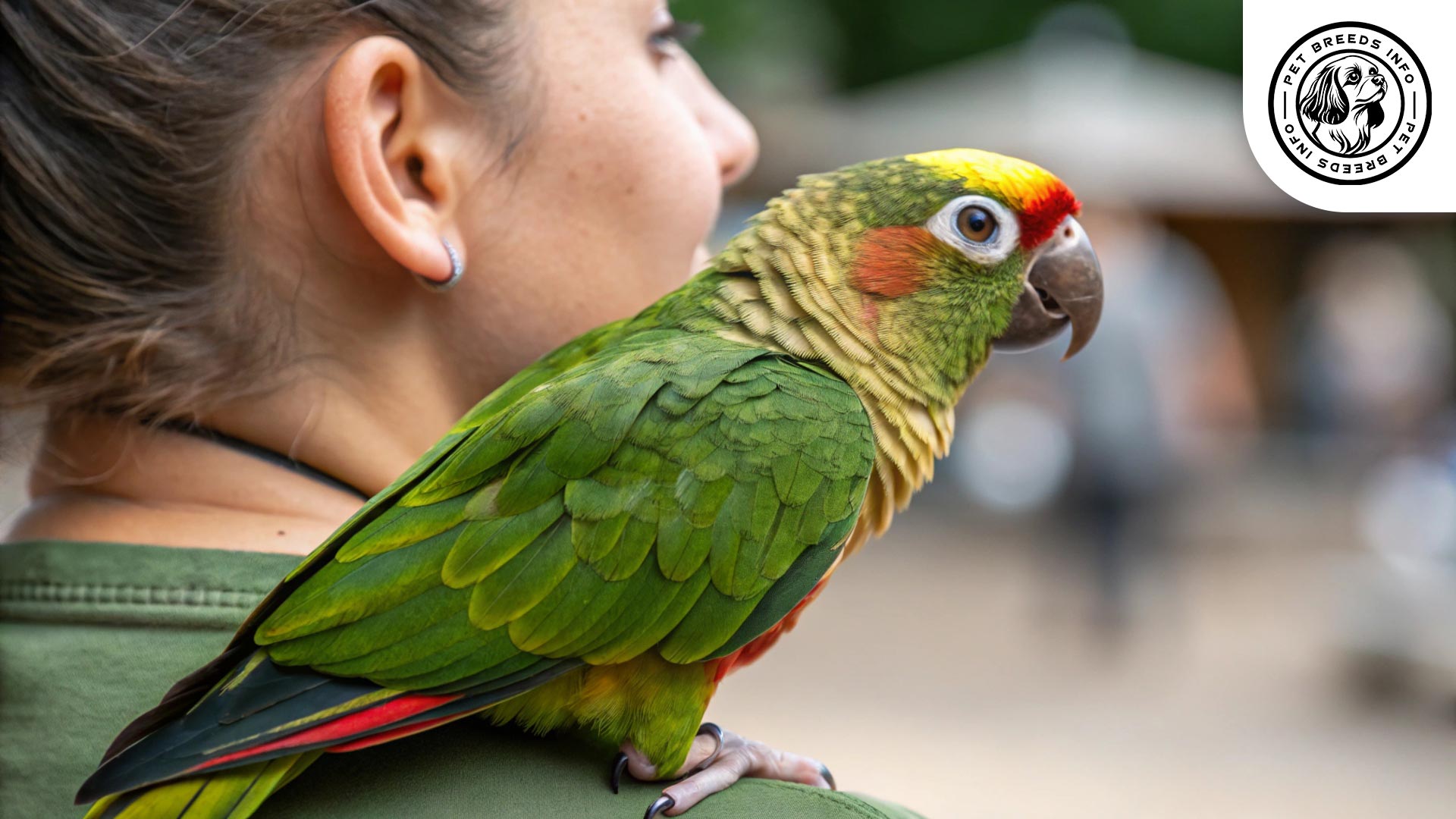
Price and Availability
The cost of a Hoffmann’s Conure typically ranges from $300 to $600, depending on age, breeder reputation, and location.
It is important to purchase from a reputable breeder or adopt from a rescue to ensure the bird’s health and ethical treatment.
Potential buyers should look for birds that are active, alert, and have bright plumage, as these are signs of good health. Adopting from a bird rescue is also a great way to give a bird a second chance at a loving home.
Conclusion and Final Thoughts
Hoffmann’s Conure is a delightful companion for bird enthusiasts, offering intelligence, playfulness, and affection. With proper care, they can live a long and happy life as cherished pets.
This breed is suitable for individuals or families who can provide daily interaction, mental stimulation, and a nutritious diet.
Potential owners should consider their active nature, social needs, and grooming requirements before bringing one home. With dedication and love, a Hoffmann’s Conure can become a loyal and entertaining feathered friend for years to come.
Read More: Green-winged Macaw
FAQ
What is a Hoffmann’s Conure known for?
They are known for their playful personality, striking plumage, and intelligence.
How big do Hoffmann’s Conures get?
They are small to medium-sized, around 22 cm (8.6 inches) long.
Are Hoffmann’s Conures good talkers?
While not explicitly stated as strong talkers, they enjoy vocalizing and mimicking sounds.
What kind of care do Hoffmann’s Conures need?
They require a spacious cage, daily exercise, mental stimulation, regular interaction, and a balanced diet.
How long do Hoffmann’s Conures typically live?
With proper care, they can live for 15–25 years.
